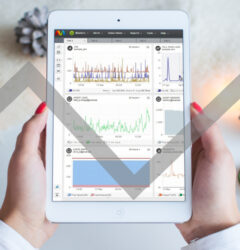[ad_1]

When your website goes offline there are many factors for you to consider as a priority, such as the loss in traffic and sales and/or leads. However, another factor to consider is how a period of downtime will affect your standing in search engines such as Google.
Website downtime correlates directly with lost rankings in search, which in turn leads to a long term loss of traffic for weeks and months after the initial period of downtime.
But what if your website only goes offline for a short period of time, would you still be facing a decline in your hard won search rankings? In this article, we take a look at how Google analyses and interprets downtime, and what some of the senior figures at Google have said on how downtime relates to SEO.
Website Crawling and Googlebot
When your website goes offline, how will Google know there is an issue?
Google indexes websites for its search engine using Googlebot, a website crawler bot that collects data from the web to add to Googles’ search engine.
If your website is experiencing a period of downtime when Googlebot comes to crawl your site, it will be met with the same error code as an end user, probably a 500 internal error response.
Just as an end user will react negatively to a website that is unavailable, so too will Googlebot. A study by SEO specialists Moz found that intermittent 500 internal server errors caused tracked keywords to plummet in search, often dropping out of the top 20 completely. The study also found that affected pages eventually received fewer crawls per day, suggesting that Googlebot visits pages less frequently, the more often it is served a server error. This means that the damage done by downtime increases exponentially the longer the period of downtime lasts.
Google’s User-Friendly Mission
Why is it the case that websites which are frequently offline decline in rankings over time?
The most obvious answer is Google’s obsessive focus on providing users of the search engine with the best possible user experience.
The Google search algorithm calculates the rank of pages for any given search term based on hundreds of ranking factors, each of which is weighted according to the importance placed on them by Google. Many of the most important ranking signals, such as page speed, mobile-friendliness, and bounce rate are factors which help to evaluate the overall experience a particular page is likely to provide to the end-user.
As such, a site that is frequently found to be offline by Googlebot will be evaluated as serving a sub-optimal user experience, and this will eventually be reflected in its ranking in search if the issue is not addressed in time.
What Google Says
Top Google employees are often pretty tight-lipped about search engine ranking factors, so when they do speak, the SEO world listens.
Matt Cutts was one of the most senior employees in the search team at Google and has provided a lot of insight into how downtime can affect your rankings. Cutts explained that if your website is down for just a day then there is unlikely to be any negative impact on your search rankings. However, an extended period of downtime, stretching over a number of days and weeks, could result in your website losing search rankings for the simple fact that Google does not want to send a user to a website that is frequently offline.
Cutts also said that they make allowances for websites that are experiencing sporadic downtime, with Googlebot generally returning to a site that was offline 24 hours later to see if it is back online.
Google engineer John Mueller offered a slightly different perspective. He claims that search rankings will see a period of flux, lasting 1-3 weeks, after just one day of server downtime. As long as downtime lasts no longer than a day, rankings will return to normal levels following the period of flux.
The delay in rankings returning to normality is accounted for by Googlebot having to recrawl the site, and making a judgement on its stability. It is for this reason that pages or websites which are offline frequently decline so significantly in rankings over time as Googlebot will reduce its crawl frequency and may even de-index a site if it believes it is offline permanently.
In conclusion, both in studies from third parties such as Moz, and in the words of senior Google employees, website downtime can wreak havoc on your hard won search rankings. This is not an absolute rule, however, and allowances are clearly made for websites which experience a short period of downtime, although it may also be the case than even in this scenario rankings may fluctuate for a period of weeks before returning to normality, However, it is websites which experience sustained periods of downtime which are most liable to see a significant drop in search rankings, something which appears to increase in severity the longer a website is found to be offline.
Scopify provides a suite of uptime monitoring tools which are easy to set-up and use, and provide you with insights you need to prevent website downtime. Our free plan includes a range of free tools, including page speed monitoring, while our paid plans include SSL Monitoring, Server Monitoring, Domain Monitoring, and Virus Scanning.
Click here, to start your free trial today.
[ad_2]
Source link



